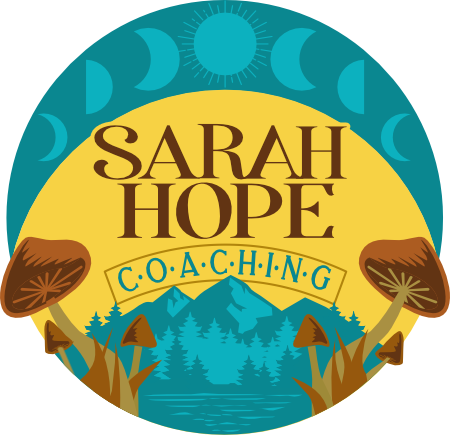How can we be responsible with the amazing gift of psychedelics? What can we learn from the way of the mushroom about ethics?
In recent psychedelic news of late there has been legitimate concern around ethical practice. Reports of abuse, inappropriate boundaries and neglect or abandonment are unfortunately common. Reports of misconduct not only occur in the psychedelic space but in other healing and spiritual organizations. Vulnerability and power dynamics can easily become contaminated.
Does this mean we should hit the brakes on psychedelic assisted healing?
Probably.
The hubris of the 1960’s collapsed the entire movement and forced psychedelic use underground- keeping it’s powerful healing ability away from so many who could benefit. Actual healing was replaced with a host of pharmaceuticals that could mask or block the deeper pain and trauma beneath the surface.
A deeper curiosity for me is what the plants themselves can teach us about ethical practice. Before throwing the baby out with the bath water, it’s worth taking a deeper look and listening to the plants themselves.
Developing a relationship with plant teachers is a powerful and difficult practice.
Plant and fungal spirit teachers can teach us hard lessons about ourselves and our ancestral roots. These teachings use our very being as the textbook and we feel to the core, each lesson they teach us. This can be both challenging and beautiful.
After our own healing, some of us are further called to help the earth-medicines help others to heal. This is an enormous responsibility. This gift comes with power that must be used wisely.
In news of late, we have seen how this power can be misconstrued and corrupted. So what can we do to avoid this corruption? I prefer to look to the plant themselves for the answer.
The mushrooms, for example, grow deeply underground, they are connected and well resourced before they ever grow fruit. They do not grow taller or larger than gravity can support. They grow in small clusters and do not try to become the only cluster, rather they release spores to travel far and wide and create new growth. They do not try to control what is released but will support and assist other living things. They do not claim to be the only thing in the forest with the only answer. Rather they participate wisely in diversity.
When things do not go perfectly, they do not look for someone to blame or punish, they simply go back to their resources and form something that works better.
What can we learn about ethical plant medicine use from the mushroom and nature in general?
- Mushrooms are not hierarchical. There is no doubt these medicines hold power but when someone uses them to hold power over others, that’s a problem. A great practitioner tends to give someone back to their own power.
- Vulnerability does not equal weakness. Like the mushroom the growth above ground may appear small but much is happening beneath the surface it takes great courage to surface or step forward and ask for help. Vulnerable beings need to be treated with respect and care. They are more powerful and deep than they may appear in a new phase of growth.
- Resource and go slow. There is a temptation to hurry up and get healing to as many people as possible. But it is important to first develop a deeply resourced foundation. Whether developing your own practice or working with someone, it’s ok to take things slowly and have a strong foundation of support. It’s ok to wait until you are ready, the results will be better and longer lasting.
- Mushrooms are not the only thing in the forest. What does this mean for us? Be wary of anyone who says they have the answer or are “the industry standard”. Also keep yourself in check. Beware of the temptation to be the one with the answer. It’s ultimately a trap and a lie. There is no one single answer or way of healing that works for everyone.
- Stay low to the ground. Whenever I ask the mushrooms what I should do the message is always this. There is no reason to become famous or grow larger than everyone else. This can also become a trap. Staying close to the ground keeps us humble and respectful to the medicine and the community.
- Know when it’s time to let go. Nature knows when something is complete and so should a space holder. There is always something beginning when something old has ended. There is no need to hold on artificially.
- Take responsibility for yourself. Plants and mushrooms do not waste time looking around for who betrayed them or who is to blame. They adapt, they do what they can. They go toward what is alive rather than what no longer serves. They repair what is broken and move away or let go of what is toxic. In other words, move towards life, foster what is alive and thriving. Move towards what is healthy and fosters growth.


0 Comments